Handwriting Skills Normal Tracing Letters Worksheets for 3-Year-Olds
5 filtered results
-
From - To
Enhance your child's early writing abilities with our "Handwriting Skills Normal Tracing Letters Worksheets for 3-Year-Olds." These expertly designed worksheets from Kids Academy provide a fun, easy way for young learners to practice tracing letters, improving their fine motor skills and hand-eye coordination. Each printable worksheet focuses on individual letters, helping children recognize and memorize the alphabet through engaging activities. Ideal for preschool preparation, these tracing exercises support early literacy and pave the way for confident handwriting. Download now to foster a love for writing in your little one. Start their handwriting journey with Kids Academy today!
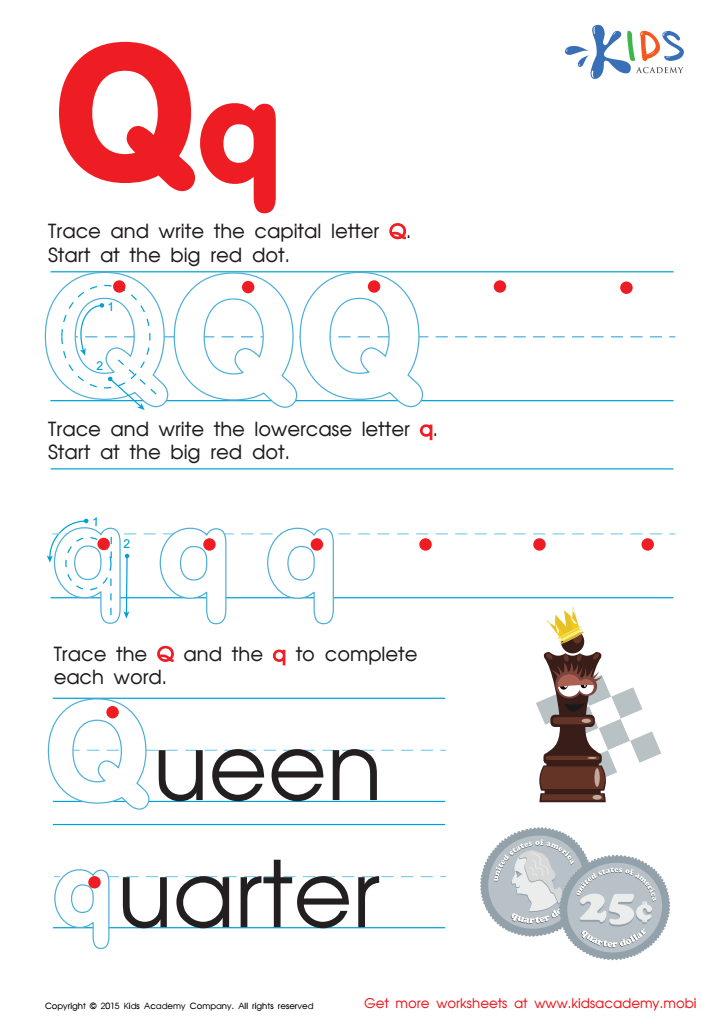

Letter Q Tracing Page
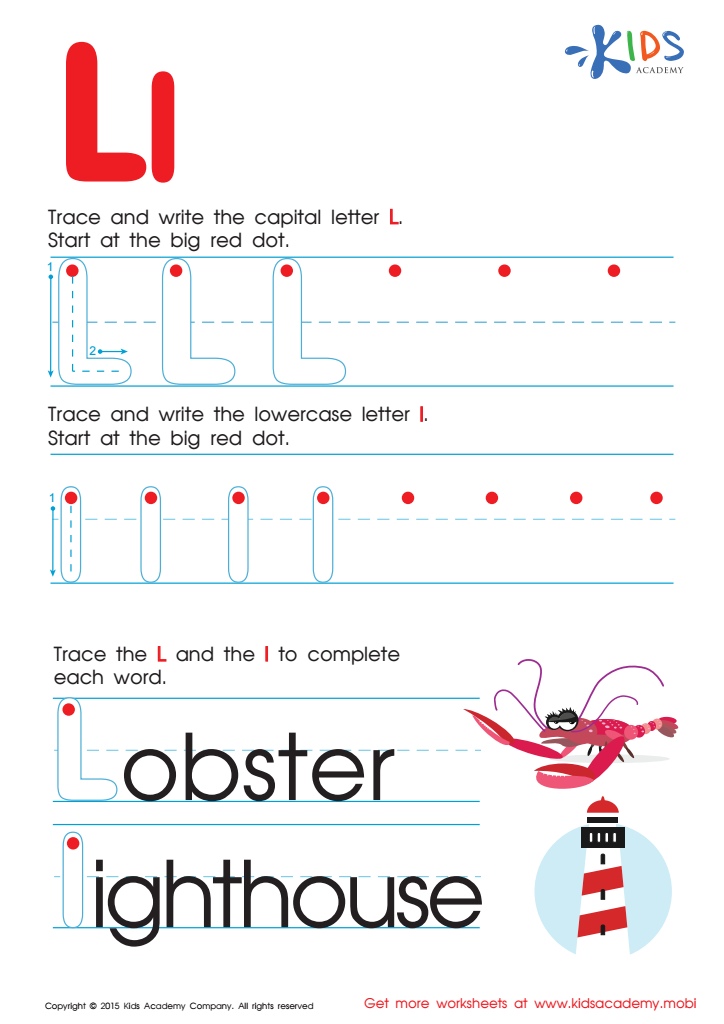

Letter L Tracing Page
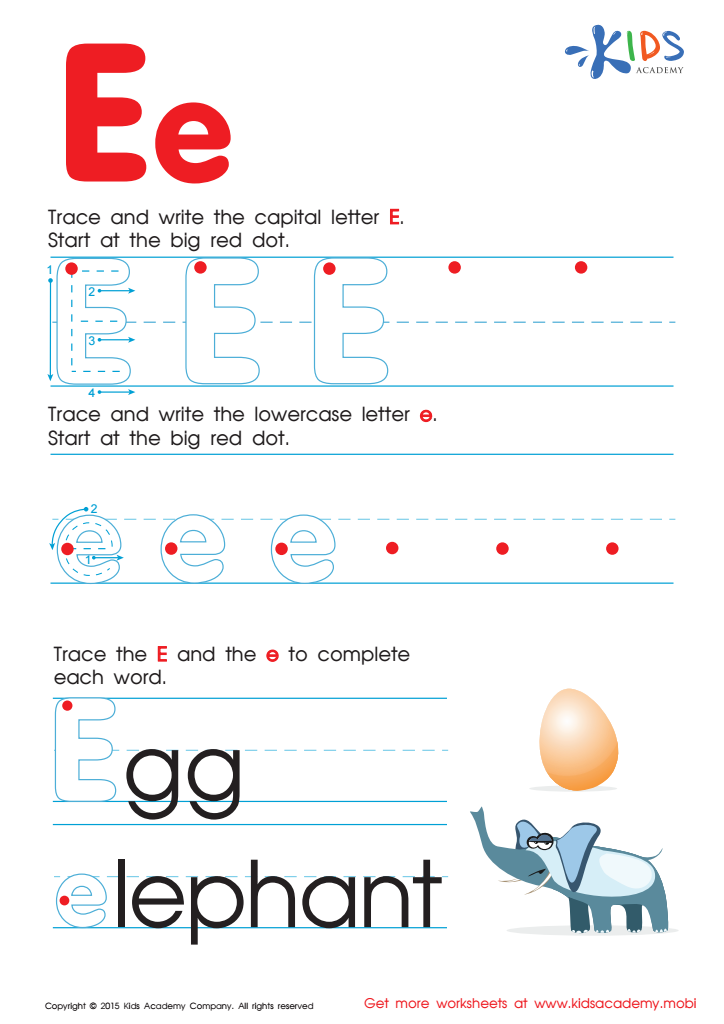

Letter E Tracing Page
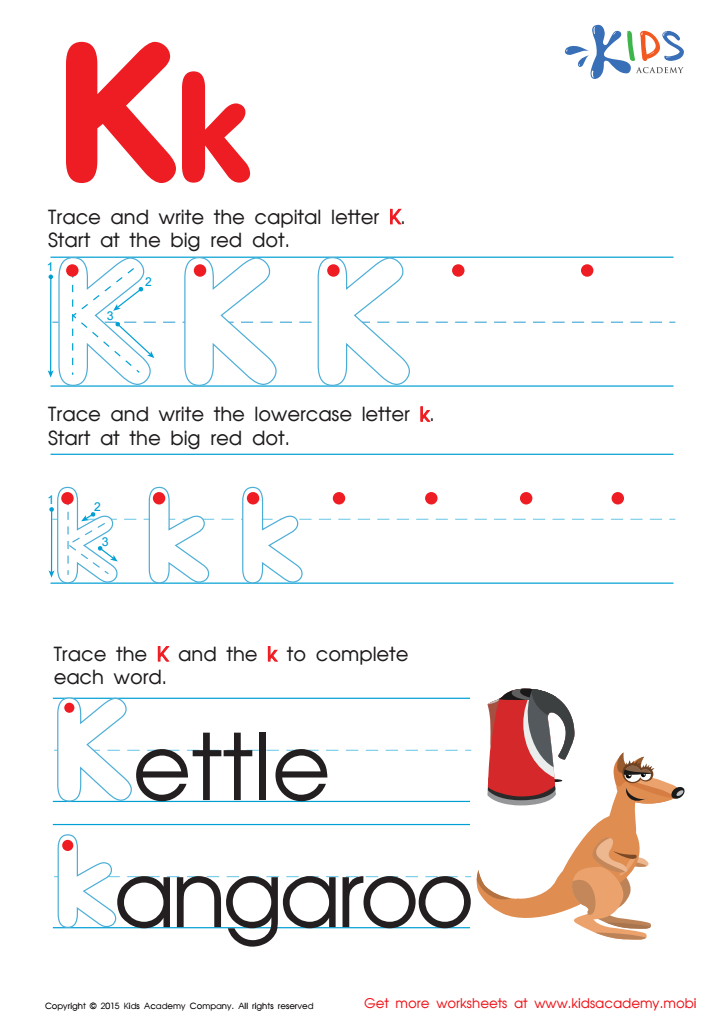

Letter K Tracing Page
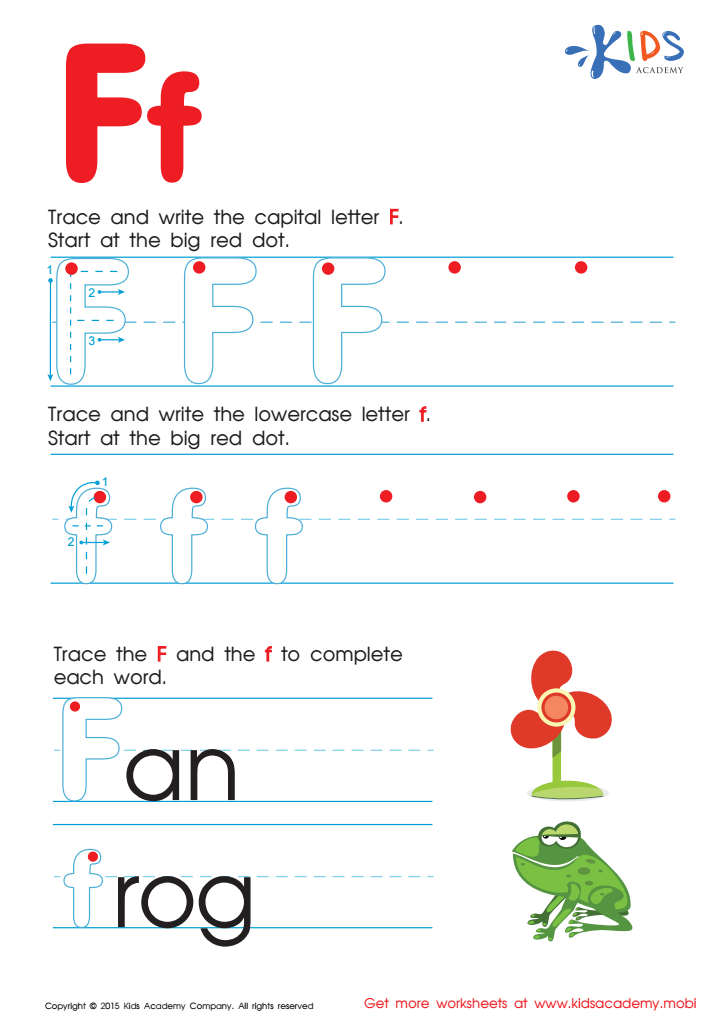

Letter F Tracing Page
Handwriting skills, particularly the ability to trace normal letters, are foundational for three-year-olds and hold immense importance for their overall development. Engaging young children in tracing activities lays the groundwork for their fine motor skills, essential for tasks like buttoning clothes and tying shoelaces. These early exercises help strengthen the muscles in their hands and fingers, promoting better coordination and dexterity.
Additionally, tracing activities support cognitive development. As children learn to recognize letters, they begin to associate symbols with sounds, which is a crucial step towards early reading and writing. These activities foster their ability to focus, follow instructions, and develop problem-solving skills, which are essential for academic success.
Handwriting practice also encompasses emotional and psychological benefits. Successfully tracing letters can boost a child’s confidence and self-esteem, reinforcing a sense of achievement and encouraging a love for learning. It provides children with a structured yet creative outlet to express themselves.
For teachers and parents, supporting the development of handwriting skills in this manner ensures that children build a strong educational foundation. By investing in these early tracing activities, adults set children on a path to becoming confident, competent learners. Moreover, it underscores the principle that foundational skills should be developed and reinforced in a supportive and nurturing environment.
 Assign to My Students
Assign to My Students
















